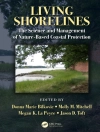The Springer Handbook of Auditory Research presents a series of compreh- sive and synthetic reviews of the fundamental topics in modern auditory — search. The volumes are aimed at all individuals with interests in hearing research including advanced graduate students, postdoctoral researchers, and clinical investigators. The volumes are intended to introduce new investigators to important aspects of hearing science and to help established investigators to betterunderstandthefundamentaltheoriesanddatain?eldsofhearingthatthey may not normally follow closely. Each volume presents a particular topic comprehensively, and each servesas a synthetic overview and guide to the literature. As such, the chapters present neither exhaustive data reviews nor original research that has not yet appeared in peer-reviewed journals. The volumes focus on topics that have developed a solid data and conceptual foundation rather than on those for which a literature is only beginning to develop. New research areas will be covered on a timely basis in the series as they begin to mature. Eachvolumeintheseriesconsistsofafewsubstantialchaptersonaparticular topic. In some cases, the topics will be ones of traditional interest for which there is a substantial body of data and theory, such as auditory neuroanatomy (Vol. 1) and neurophysiology (Vol. 2). Other volumes in the series deal with topics that have begun to mature more recently, suchasdevelopment, plasticity, and computational models of neural processing. In many cases, the series — itorsarejoinedbyaco-editorhavingspecialexpertiseinthetopicofthevolume.
Содержание
Developmental Neurobiology of the Ear: Current Status and Future Directions.- The Induction of the Otic Placode.- Morphogenesis of the Inner Ear.- Wiring the Ear to the Brain: The Molecular Basis of Neurosensory Development, Differentiation, and Survival.- Notch Signaling and Cell Fate Determination in the Vertebrate Inner Ear.- The Differentiation of Hair Cells.- Developmental Genes Associated with Human Hearing Loss.












